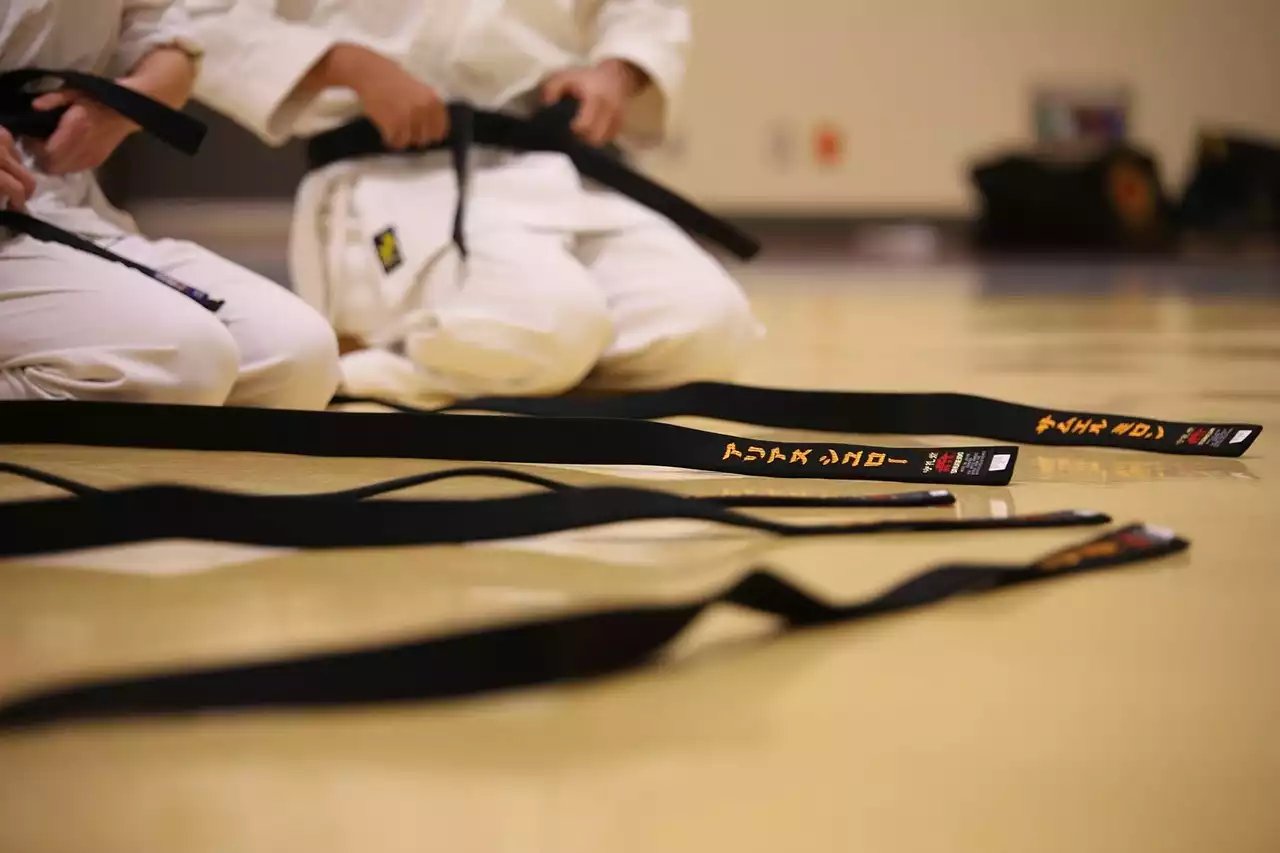What is Karate Refereeing and Judging?
Karate refereeing and judging is the process of monitoring a karate competition for safety, fairness, and adherence to the rules. Referees and judges are responsible for ensuring that the competition is conducted by the rules and regulations of the sport. To do this, referees and judges must be knowledgeable about the rules and regulations of karate refereeing and judging.
Overview of Karate Refereeing and Judging Rules
The rules and regulations of karate refereeing and judging are designed to ensure that the competition is conducted safely and fairly. The most common rules of karate refereeing and judging include:
- Upholding the spirit of the sport: Referees and judges should not allow any behavior that is contrary to the spirit of the sport of karate.
- Maintaining a safe environment: Referees and judges must ensure that the environment is safe for all competitors and spectators.
- Setting clear expectations: Before the match begins, the referee should explain the rules and regulations to all competitors and set clear expectations for all parties involved.
- Monitoring for fair play: Referees and judges must monitor for any potential rule violations or unsportsmanlike conduct.
- Making decisions quickly and fairly: Referees and judges must be able to make decisions quickly and fairly to maintain the integrity of the competition.
- Respecting the competitors: Referees and judges must respect the competitors and treat them fairly.
- Following the rules: Referees and judges must follow the rules of the sport and make sure that the rules are followed by all parties involved.
Different Types of Referees and Judges
In karate competitions, there are several different types of referees and judges. The most common types of referees and judges include:
- Head Referee: The head referee is responsible for overall oversight of the karate competition. The head referee is responsible for ensuring that the rules and regulations of karate refereeing and judging are followed.
- Line Referees: Line referees are responsible for monitoring the action in the ring. Line referees must be able to quickly and accurately detect rule violations and make decisions based on the rules of the sport.
- Ground Referees: Ground referees are responsible for ensuring that the ground rules are followed. Ground referees must be able to recognize when a competitor is in a dangerous situation and take appropriate action.
- Judges: Judges are responsible for scoring the karate match. Judges should be knowledgeable about the rules of the sport and be able to accurately score the match.
Responsibilities of Referees and Judges
Referees and judges have several responsibilities when it comes to karate refereeing and judging. The most important responsibilities of referees and judges include:
- Maintaining order: Referees and judges must maintain order in the ring and ensure that the competition is conducted fairly and safely.
- Enforcing the rules: Referees and judges must enforce the rules of the sport and ensure that all parties involved are following the rules.
- Making quick and fair decisions: Referees and judges must be able to make quick and fair decisions to maintain the integrity of the competition.
- Respecting the competitors: Referees and judges must respect the competitors and treat them fairly.
- Ensuring safety: Referees and judges must ensure that the environment is safe for all competitors and spectators.
Preparation for Refereeing and Judging Karate Competitions
To successfully referee and judge a karate competition, referees and judges must be properly prepared. Preparation for karate refereeing and judging includes:
- Familiarizing oneself with the rules: Referees and judges should familiarize themselves with the rules and regulations of karate refereeing and judging.
- Practicing: Referees and judges should practice making decisions quickly and accurately to be prepared for any potential rule violations.
- Being aware of potential rule violations: Referees and judges should be aware of any potential rule violations and be prepared to take action if necessary.
- Having the necessary equipment: Referees and judges should have the necessary equipment, such as a whistle, stopwatch, and scorecards, to properly referee and judge the competition.
Common Issues Faced by Referees and Judges
Karate refereeing and judging can be challenging, and referees and judges must be prepared to face any potential issues. The most common issues faced by referees and judges include:
- Dealing with rule violations: Referees and judges must be prepared to deal with any potential rule violations.
- Maintaining order: Referees and judges must be prepared to maintain order in the ring and ensure that the competition is conducted safely and fairly.
- Making quick and fair decisions: Referees and judges must be able to make quick and fair decisions to maintain the integrity of the competition.
Karate Refereeing and Judging Etiquette
In addition to following the rules and regulations of karate refereeing and judging, referees and judges should also follow certain etiquette guidelines. These guidelines include:
- Respecting the competitors: Referees and judges should respect the competitors and treat them fairly.
- Maintaining a professional demeanor: Referees and judges should maintain a professional demeanor and avoid any unnecessary distractions.
- Being courteous: Referees and judges should be courteous to all parties involved in the competition.
- Being impartial: Referees and judges should be impartial and ensure that they do not show any favoritism.









